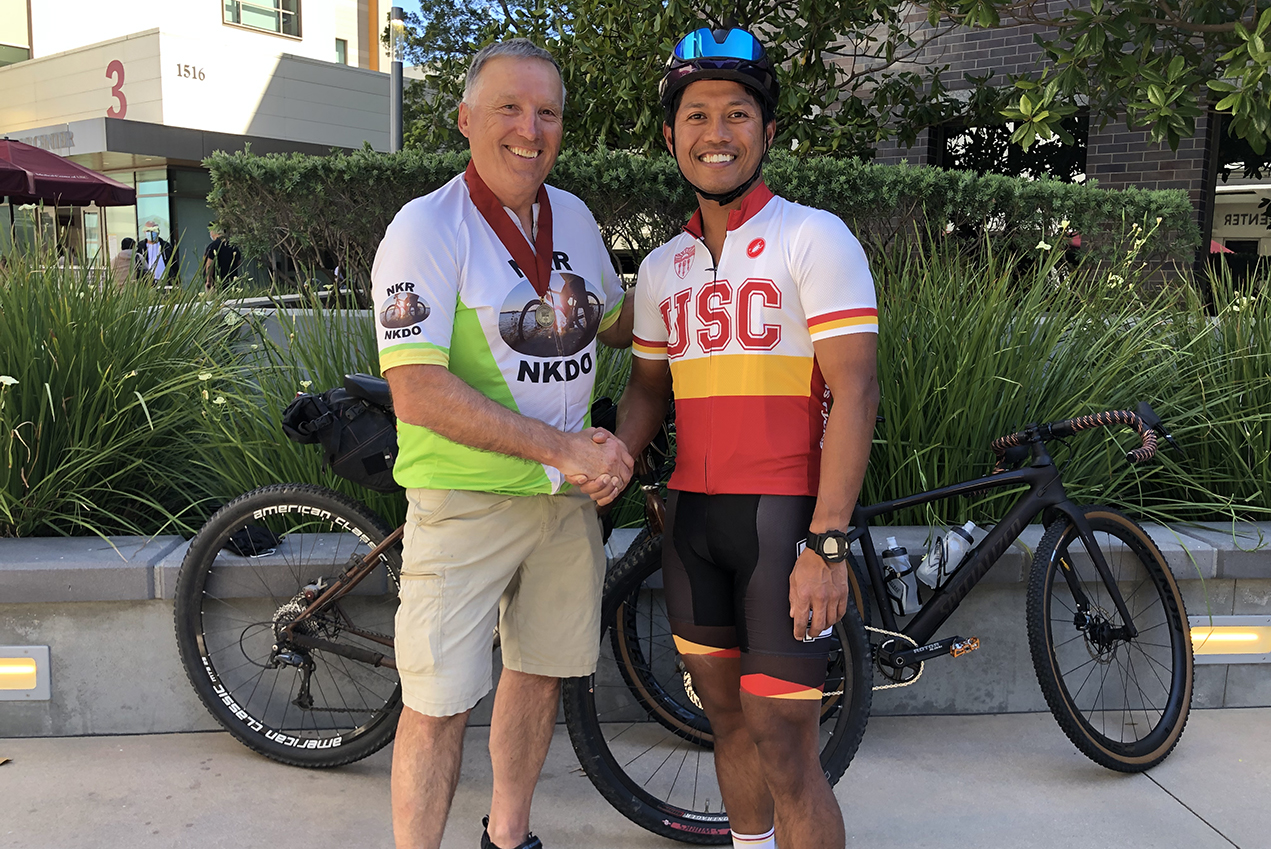Each day, an average of 13 people die while waiting for a kidney transplant, but living kidney donations can be a highly effective countermeasure.
It’s a message that Mark Scotch has taken on the road. The 66-year-old is an avid long-distance cyclist and founder of The Organ Trail, a series of cycling trips spanning several states developed to raise awareness regarding living kidney donation.
Scotch’s passion for the cause began during a trip to Louisiana, where he had a chance meeting with a man named Hugh Smith. The two quickly became friends, and upon hearing that Smith needed a kidney, Scotch made it his goal to donate to Smith.
By using the voucher program available at the National Kidney Registry, he discovered that he and Smith were not as compatible as recommended. So while Smith received a transplant from a better match in Southern California, Scotch was matched to a patient in New York to whom he gladly donated.
Since then, Scotch has been passionate about raising awareness through sharing his story all over the nation. His cross-country rides are not only a matter of outreach, but to take the opportunity to visit transplant centers and to demonstrate that it’s possible to continue living a full, healthy life after donating.
In late March, Scotch took his tour up the California coast from San Diego to Santa Monica, then to Keck Medical Center of USC, where he visited the transplant center before starting a ride east to Lubbock, Texas.
And in a show of solidarity and gratitude, Ernie Villalon, BSN, RN, CCTC, CPTC, a living kidney donor coordinator at Keck Medicine, joined Scotch in Santa Monica and biked with him to Keck Medical Center.
“It really inspires me to keep doing what I’m doing, to know that what I’m doing is a good thing for people, that I’m not harming people, that it makes people happy and it gets people a second chance at life,” Villalon said.
A shared connection
An enthusiastic cyclist, Villalon first learned about Scotch and The Organ Trail in the fall of 2021 at a National Kidney Registry (NKR) event known as the Donor Games. Naturally, Villalon wasted no time reaching out, and the pair quickly decided to team up.
“When I talked to Ernie, I knew he was going to make something happen one way or the other,” Scotch said. “If all that meant was that we were going to do a ride together, then that was fine with me.”
Villalon and Scotch were also quick to bond on several levels.
“With a fellow biker, there’s always a connection almost immediately,” Scotch said. “We were speaking the same language, and we also got to speak the same language when it came to kidney donations. It’s almost like I knew him before I even met him.”
The path to progress
When it comes to advocating for kidney donation, both Scotch and Villalon work hard to teach the public about the importance of living donors.
While donation surgery is regarded as a safe, common procedure, Scotch and Villalon agree that it isn’t for everyone, and that no one should feel any pressure to go through a procedure they’re not comfortable with — even if it means leaving the hospital right before the surgery.
Still, they emphasized that advocacy and raising awareness can be a valuable effort.
“The more barriers we can break down for people that are thinking of becoming living donors, whether that’s through the donor protection that NKR offers or to let people know that if they donate, they’d be first on the waitlist if they need a kidney — things like that can really help people and make the decision easier,” Scotch said.
Next spring, Scotch will pedal from Lubbock to New Orleans. The entire tour, including this recent leg, will take him from California to Louisiana in honor of his friend Smith by tracing the route of his donated kidney.
To learn more about living kidney donation and the options available for donors, hopeful recipients and anyone who wishes to help, visit the NKR website at KidneyRegistry.org.
To follow Scotch’s adventures on the road and to learn how to support the cause, visit The Organ Trail website at MarkScotch.com.
— Kate Faye


